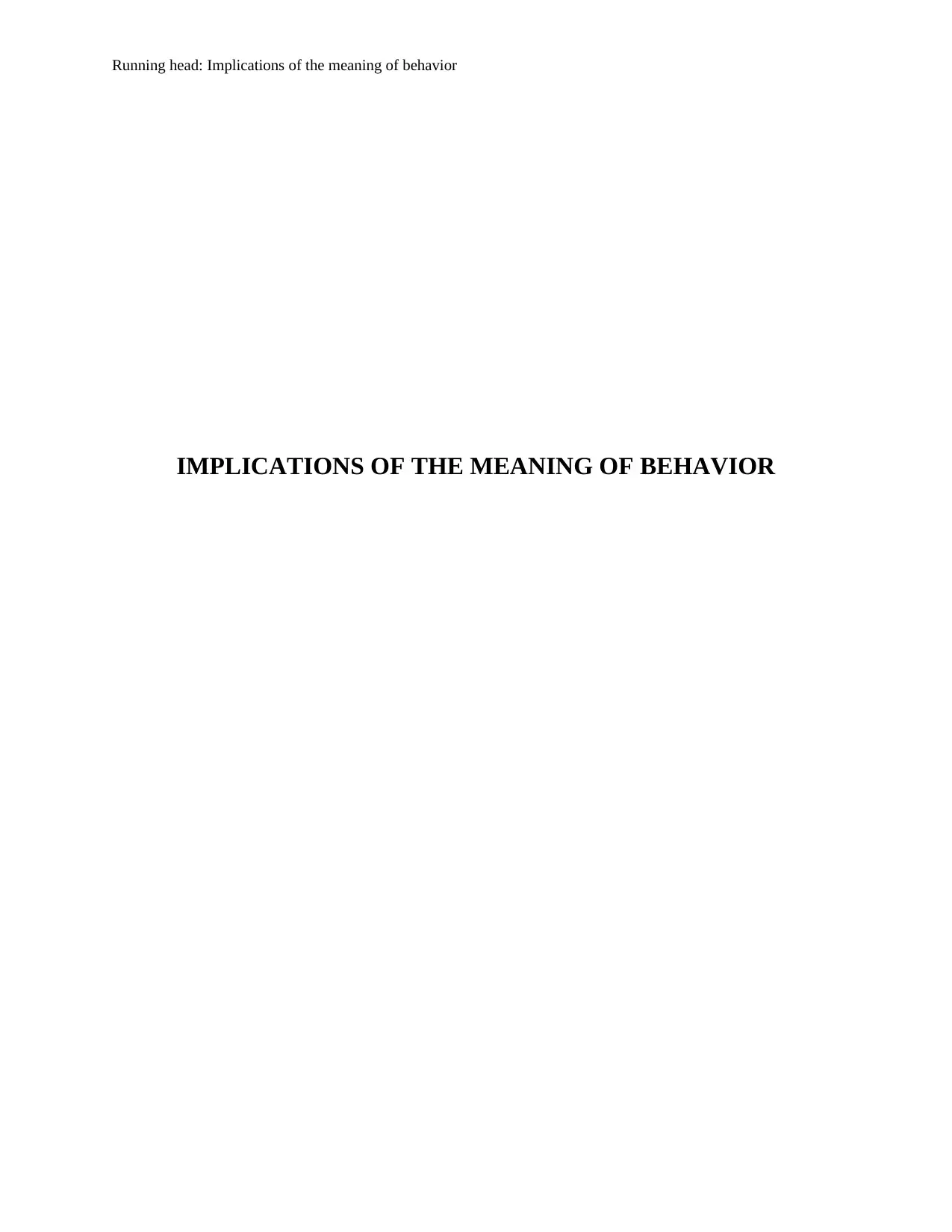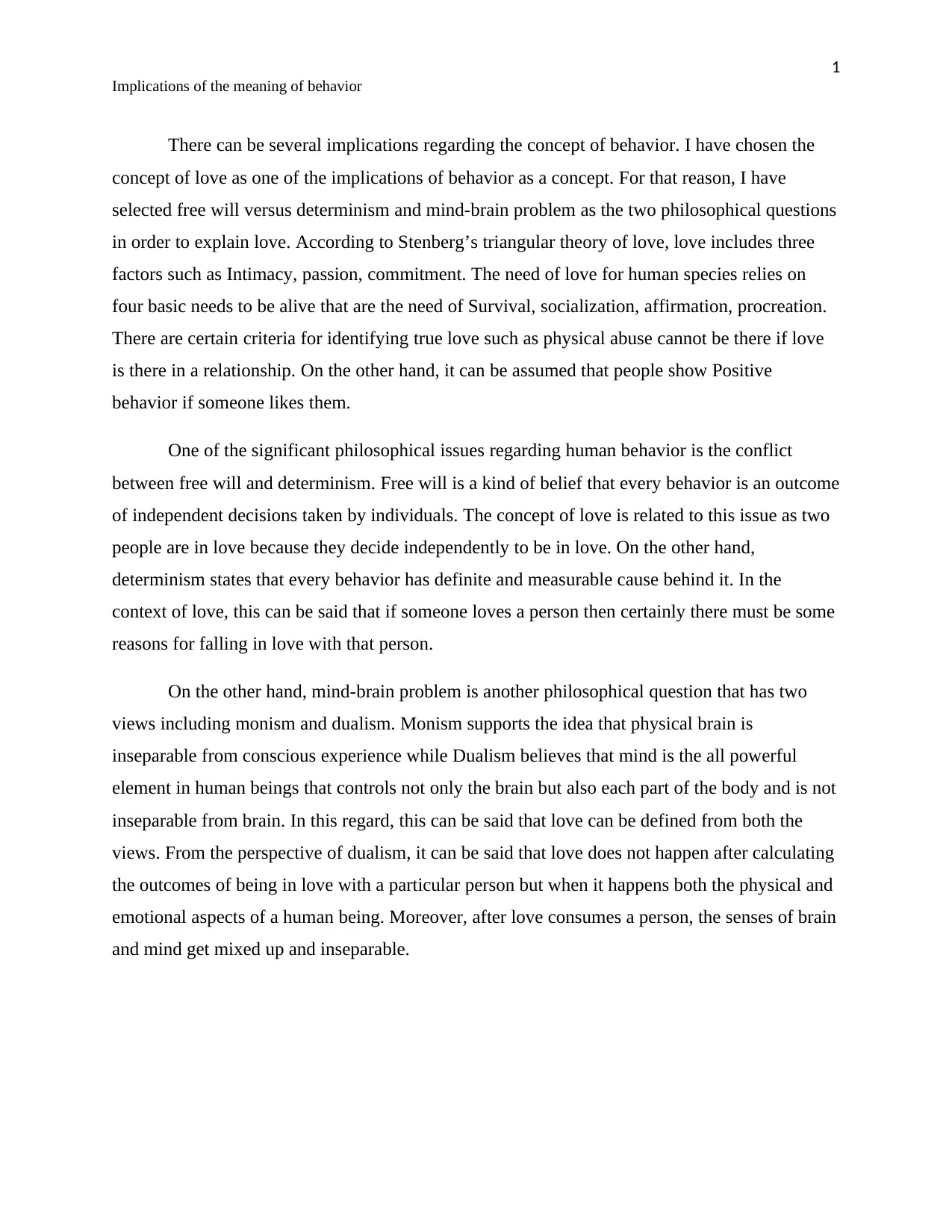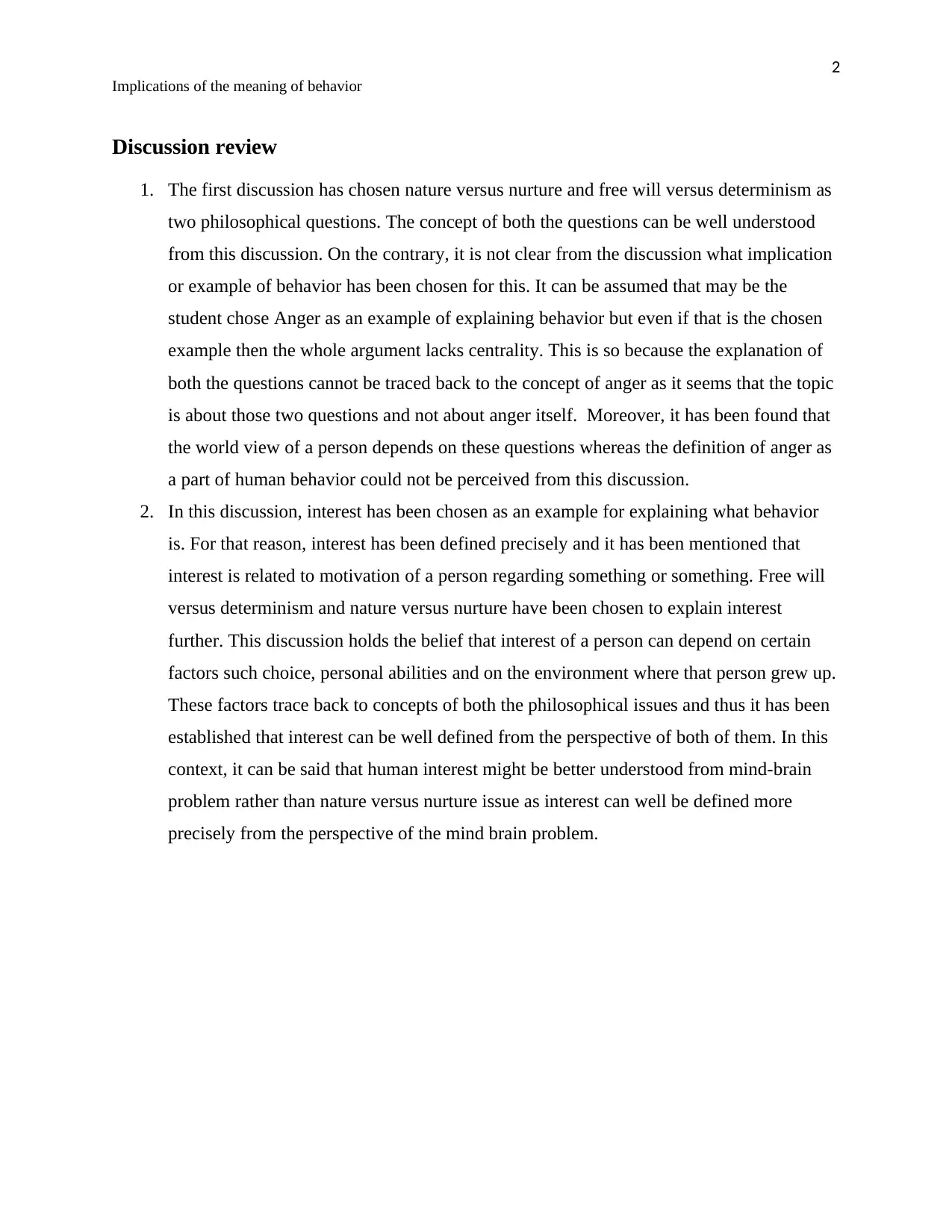Analyzing Behavior: Implications via Philosophical Questions in Psych
VerifiedAdded on 2023/04/23
|3
|761
|320
Discussion Board Post
AI Summary
This discussion board post delves into the implications of behavior, using 'love' as a central concept and exploring it through the philosophical lenses of free will versus determinism and the mind-brain problem. It references Stenberg’s triangular theory of love and the basic human needs it fulfills. The post contrasts free will, the idea that behaviors stem from independent decisions, with determinism, which posits that every behavior has a measurable cause. The discussion also examines the mind-brain problem, contrasting monism (the inseparability of brain and conscious experience) with dualism (the mind's control over the body). Additionally, it reviews two other student discussions, critiquing their clarity and centrality to the chosen behavioral examples (anger and interest) and suggesting improvements in relating the philosophical questions to the selected behaviors. The post concludes by suggesting that the mind-brain problem might be a better framework than nature versus nurture for understanding human interest.
1 out of 3










![[object Object]](/_next/static/media/star-bottom.7253800d.svg)